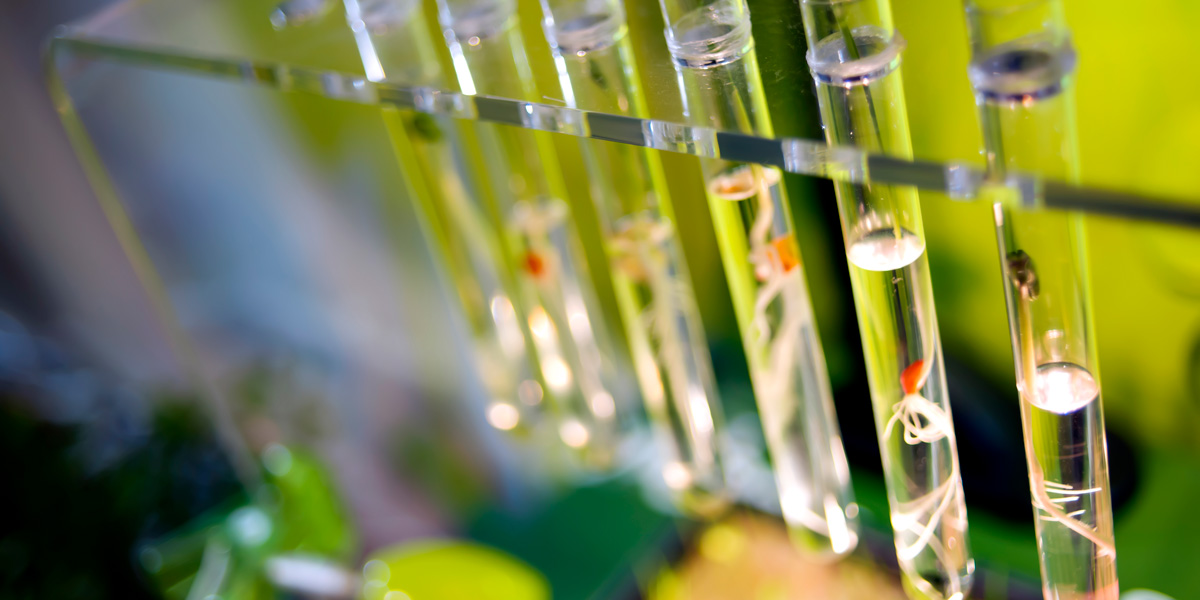
If the agbiotech lobby gets its way, gene-edited crops and products could be rushed to market with no safety checks and potentially no labelling
Please circulate this important article far and wide. It provides a much-needed balance to the endless stream of gene-editing hype from the agbiotech lobby.
---
The EU must not de-regulate gene-edited crops and foods
By Dr Michael Antoniou
Euractiv, 9 July 2019
https://www.euractiv.com/section/agriculture-food/opinion/the-eu-must-not-de-regulate-gene-edited-crops-and-foods/
[links to sources at this URL]
* Dr Michael Antoniou is molecular geneticist at King’s College London
Some members of the outgoing EU Commission and the agbiotech lobby want the regulations governing genetically modified crops and foods relaxed or scrapped to open markets for gene-edited products. But this goes against the science underpinning the technology and could put the public and environment at risk, writes Dr Michael Antoniou.
Some members of the outgoing European Commission want to change the EU legislation on genetically modified (GM) foods and crops to accommodate the products of new gene-editing techniques, often called “new plant breeding techniques” or NBTs.
Agriculture Commissioner Phil Hogan said DG SANTE “has already prepared the ground for a new initiative on gene editing to overhaul the current GMO legislation”. The “initiative” will be taken up by the new Commission after this year’s elections.
It appears that these Commissioners are supporting a years-long lobbying push by the agbiotech lobby to remove or weaken the usual safeguards applied to genetically modified organisms (GMOs) when it comes to products from new gene-editing techniques.
If the lobby gets its way, gene-edited crops and products could be rushed to market with no safety checks and potentially no labelling.
The trigger for the de-regulation push is last year’s ruling by the European Court of Justice (ECJ) that organisms obtained by gene-editing (called in the case “mutagenesis”) techniques are GMOs and fall under the GMO Directive. That means they must be subjected to safety checks and carry a GMO label.
The ruling is in line with the precautionary principle and states that gene-editing techniques do not have a long safety record and may pose similar risks to older-style GM techniques. However, it upset the agbiotech lobby, which sees it as a barrier to business.
As a genetic engineer who uses both old-style gene transfer and new gene-editing tools for medical research, I can confirm that the ECJ ruling is true to science.
In the medical research community, it is not disputed that gene-editing techniques are GM techniques that give rise to GMOs and that these procedures and their products carry risks that require strict regulation. Only in the field of agbiotech is de-regulation demanded.
Health Commissioner Vytenis Andriukaitis said the planned overhaul of the GMO regulations is needed because the EU’s 20-year-old GMO Directive fails to reflect technological progress in gene editing.
But the truth is that gene-editing tools are still far from perfect. Research shows that they are not as precise as is claimed, nor are their outcomes predictable. They produce many unintended effects, not only at “off-target” sites but also at the intended gene-edited site.
Many unintended effects occur after the gene-editing tool has finished its task, when the editing process is at the mercy of the cell’s DNA repair machinery, over which we have little or no control.
What does this mean for consumer safety and the environment? Genetic manipulation brings about new combinations of gene functions and thus can change the composition of plants in unexpected ways, meaning that they could produce new toxins or allergens, or have harmful impacts on wildlife.
This is not mere speculation. A number of animal feeding studies with the first generation of GM crops show that the GM diet harmed the animals’ health. In most cases, we don’t know if the effects were caused by the GMO or the pesticides it was grown with, but that’s just another indication of how incomplete our knowledge is.
Would similar effects be seen from gene-edited plants? No one knows. No animal feeding studies with “new GMOs” have been published.
Other studies show that GM crops have harmed wildlife in unexpected ways.
As I know from personal as well as others’ experience, studies showing risks from GMO foods and their associated pesticides are attacked by agbiotech lobbyists and their allies in the scientific community. But much of that community is now dependent on industry funding and/or influenced by personal financial interests in agricultural biotechnology.
This situation has led the environmental anthropologist Glenn Davis Stone to lament that the scientific community has largely lost the “honest brokers” who should inform public policy about the risks of gene-editing technologies.
Nevertheless, some scientists are prepared to publicly demand that a precautionary stance must be taken on gene-edited products. They state that these products must be strictly regulated with full recognition of the uncertainties of the gene-editing process – and they must be labelled to enable farmer and consumer choice.
This is the reasonable “middle way” that the new Commission should embrace. It’s not a ban on these technologies, but equally, it is not the extreme free-for-all that the agbiotech lobby wants. Crucially, it is true to science and puts public and environmental safety before company profits.










